#elite colleges
Explore tagged Tumblr posts
Text
This is a guest post by Jake Mackey, a professor of classics at a liberal arts college in California and co-founder of Free Black Thought. He has two prior guest posts here: Living by virtuous lies: On the "racism" of the SAT and White Doctors Kill Black Babies: Dubious Science and Anti-Racist Medicine (co-authored with David Gilbert).
-

[ Depicts a scene from Arthur Miller’s The Crucible, ostensibly about the Salem Witch Trials, but widely acknowledged as a metaphor for 1950s McCarthyism. Giles was accused of witchcraft but refused to plead either guilty or not guilty because his heirs could then be deprived of his considerable estate. As Giley is being pressed by the weight of massive stones, he is repeatedly urged to enter a plea. His response: “More weight.” It eventually killed him. Amusing side note, Lee writing here. I played Giles Corey in my high school play. ]
-
I am 53 years old. The last four years amount to the most repressive, totalitarian era I've ever lived through.
By: Jake Mackey
Published: Dec 18, 2024
Noam Dworman, host of the Comedy Cellar Podcast, put it this way: If—
“the general atmosphere of fear that we lived through as people who want to speak and live our lives freely—if all that change in American society had the fingerprints on it of a particular leader, that leader would be a fascist. If any leader had brought that change into our lives, that would be the most fascist experience with a leader we have ever seen in this country.”
But the author of all this change was not a particular leader. It was the left.
It was a society-wide culture of left-authoritarian intolerance, not a fascist leader, that made me watch my words like a hawk in my classroom for half a decade.
It was fear of retaliation from the left, not from a fascist leader, that caused me to lay awake at night on more occasions than I can count, terrified that a student might have misinterpreted something I said in class and initiated a cancelation campaign against me.

It was not a fascist leader but fear of intolerant leftists among my colleagues that made me censor myself, as a yet-untenured faculty member, when I was asked to report on my findings about the efficacy—which is nil or worse—of diversity training. It was fear of my leftist colleagues that made me bite my tongue and not speak out when I was asked to sign a statement containing a defamatory lie about a student who had in fact made hateful comments about Asians in a private text message, but had not, as we were asked to affirm with our signatures, threatened violence. (I did not sign, but shamefully I did not defend this vulnerable 19-year-old against faculty lies.)
It was not a fascist leader but fear of a pile-on from the left that compelled a colleague and me to humble ourselves before 18-year-olds with a public apology when a small group of students held our jointly taught class hostage for 30 minutes, tearfully accusing us of traumatizing them by showing a brief scene from a film about war, The Thin Red Line, in order to illustrate a point that St. Augustine makes in his Confessions about the evil in the human heart.
We later learned that the majority of the students had disagreed with their peers’ performative accusation of “harm” and had resented their hijacking of the class with transparently nonsensical accusations. However, the sensible majority of students were as terrified of their peers as we were, and of their peers’ capacity to destroy them for even imaginary infractions, and so they had held their tongues as the grotesque event unfolded. (Worth noting here: I think the vast majority of students, and faculty and administrators, too, are reasonable people who were intimidated into silence by socially distributed authoritarianism, just as I was, over the past years. More on this dynamic below.)
Nor were my colleague and I unique among faculty on my campus. No, it was not a fascist leader but fear of attack from the grassroots left that generated countless whispers among faculty in the halls of my college and others. Professors were afraid to tell any but their most trusted colleagues about how students had stood up in class to denounce them for ideological apostasy or to accuse them of "traumatizing" or "harming" them by teaching basic scientific facts. Professors were afraid to show a “triggering” image, or to fail to teach a given subject from the now-mandatory ideological perspective of Afropessimism. Professors were afraid to teach historical or literary material, unobjectionable until seemingly just the week before, that was now deemed inherently "white supremacist."
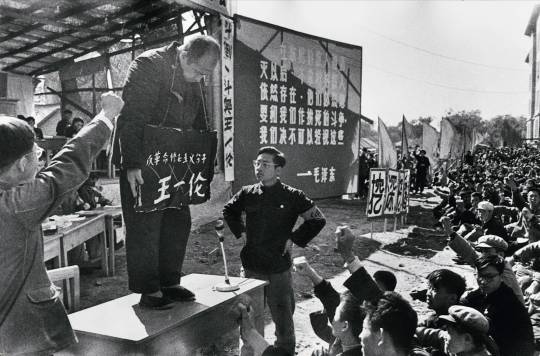
[ Maoist public shaming ]
It was not a fascist leader but a merciless socially distributed grassroots left-authoritarianism that led a senior administrator, a black man, to remark to a small group of us whom he trusted—
“I live in fear that if I say one wrong word, it will be the end of a 30-year career. I worry that I can’t protect my staff if any of them says one wrong word.”
It was not a fascist leader but a leftwing culture of retribution enacted by 18-year-olds—before which a department chair, tenured faculty, and college administrators cowered and averted their eyes—that ended the career of a colleague of mine because she read out loud the name of a character in an antiracist comic book. Yes, it was a classroom of first-year students—acting with the tacit complicity of an entire college staffed by cowards (whose cowardice was nonetheless rational)—that ended her career for reading a name in a comic book whose entire lesson centered on the evils of racism. They denounced her as a white supremacist in a way that her fledgling career as a professor, which had begun only one semester before, could never recover from.
Off campus, I know an artist whose career and business a left-authoritarian mob, not a fascist leader, attempted to destroy because he did not post a black square, signaling solidarity with BLM, on his company’s social media in 2020.
I know a musician who lost his band and music career merely for revealing that he was reading a book that had been effectively "banned" by a censorious left. His experience of repressive, totalitarian retribution came not from a fascist leader, but from a faceless, intolerant mob.
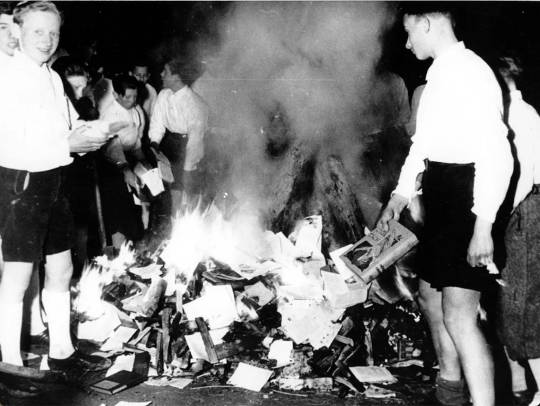
[ Nazi book burning ]
It was not a fascist leader but fear of a cancelation campaign from the left—as well as fear that many of my colleagues and college administrators would tacitly endorse the campaign out of their own fear of defending me—that led me to issue a groveling apology to a small group of students and faculty for bringing this same musician to my campus, along with Daryl Davis, a musician and anti-Klan activist who has done more to combat the most virulent forms of antiblack racism in America than perhaps anyone since the Civil Rights era, as part of a Foundation Against Intolerance and Racism (FAIR) panel discussion.
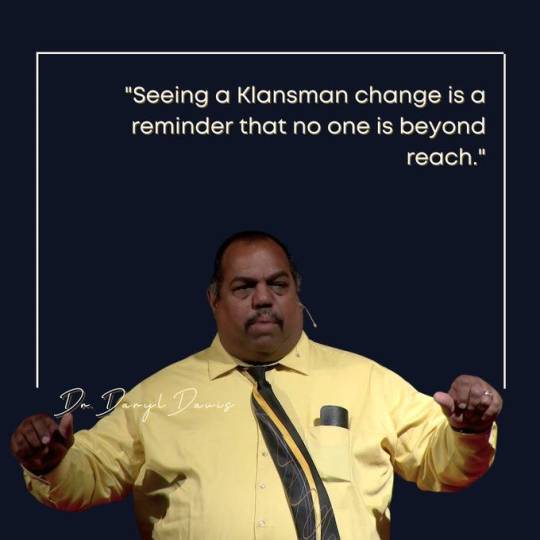
[ Lee here. Daryl Davis has, miraculously, by befriending them, gotten over 200 members of the KKK to abandon the group. When they do so, they donate their KKK robes & hoods to him, which he keeps as a kind of trophy. I really wanted to post an image of him with a reformed KKK member in full garb, but because of the very reasons outlined in Jake’s essay, I decided against it. You can follow Daryl on X (formerly Twitter) here and see for yourself; he posts those images regularly. ]
The two musicians got into a spirited but friendly disagreement about the value of BLM’s approach during the FAIR panel discussion. Afterwards, I heard from a senior colleague that some students and faculty who had been peripherally involved with bringing the panel to campus were mortified that their names might be associated with an event in which someone had said something critical of BLM, and that I would do well to issue an apology. Perhaps these students and faculty really could not countenance hearing criticism of BLM. More likely, I suspect, they were motivated by the same terror of cancelation and ostracism that I was. If their peers learned that they had had anything to do with a panel on which BLM was criticized by one of the speakers, they could face social or professional death on our small campus.
I have read of accomplished leaders in the world of arts and literature who lost their positions not because they criticized BLM but because the statement of solidarity with BLM that they published was not strident enough. I have read (and written) of physicians who lost important positions, were subjected to star chamber proceedings, and whose words were scrubbed from the internet merely for suggesting that socioeconomic conditions and not the unscientific construct of "implicit bias" were responsible for racial health disparities.
I have read of a liberal, gay Canadian educator, who had served children selflessly for decades, who was quite plausibly driven to suicide after being derided as a racist in front of an audience of 200 of his peers by a DEI trainer in a COVID-era “diversity” Zoom call.
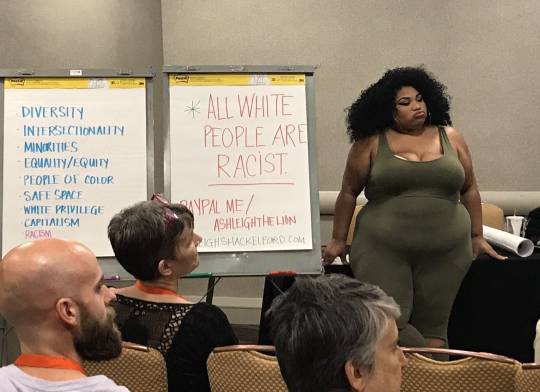
And I could go on. And on. And on. And on. And on. And I still wouldn’t have broached the repressiveness of our response to COVID, in which the government was involved, occasionally recruiting private citizens as instruments of repression!
Socially Distributed Authoritarianism: No Fascist Leader Needed
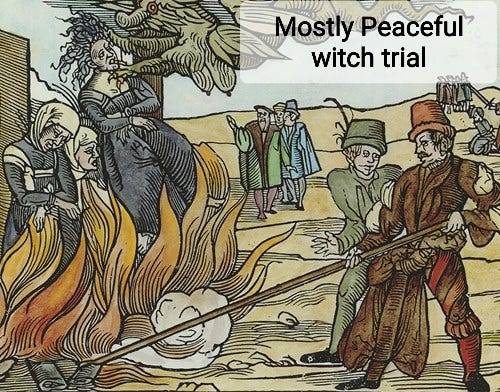
None of this repressiveness, this authoritarian intolerance, this insistence that only a single view was acceptable on pain of professional and social destruction—along with the fear that it all generated—was imposed by a fascist leader. No, it was imposed through the distributed channels of a small number of individual agents converging on an ideology that the vast majority of Americans found absurd, and on a set of repressive practices to enforce it on an unwilling populace. It was also imposed—and this is crucial—by the vast majority of individuals and institutions whose rationally self-interested fear of being subjected to these repressive practices made them turn their eyes away, allowing it to happen to those around them and tacitly endorsing it.
And I cannot but include myself in this indictment. So many of us, myself included, behaved like latter-day Peters, thrice denying the Jesuses of our colleagues, friends, and family in order to save our own skins by falsifying all our most dearly held preferences. My own cowardly failure, before 2022, when at last I got tenure and achieved a measure of security, to come to the aid of friends who were being unfairly scapegoated and professionally destroyed will forever be a source of shame for me.
John Stuart Mill, in his 1859 treatise On Liberty, noted that in cases such as I have described here, “society is itself the tyrant—society collectively over the separate individuals who compose it.” A collective tyrant of this sort—
practises a social tyranny more formidable than many kinds of political oppression, since, though not usually upheld by such extreme penalties, it leaves fewer means of escape, penetrating much more deeply into the details of life, and enslaving the soul itself.
The risk of lapsing into a “social tyranny,” Mill believed, warranted a kind of prophylaxis that even measures like the First Amendment cannot provide—
Protection…against the tyranny of the magistrate is not enough: there needs protection also against the tyranny of the prevailing opinion and feeling; against the tendency of society to impose, by other means than civil penalties, its own ideas and practices as rules of conduct on those who dissent from them; to fetter the development, and, if possible, prevent the formation, of any individuality not in harmony with its ways, and compel all characters to fashion themselves upon the model of its own.
The Tyranny of the Minority and the Spiral of Silence
Mill, it must be noted, is describing here a “tyranny of the majority,” whereas the “woke” social tyranny we have lately lived through and of which we are perhaps now breaking free may better be seen as a “tyranny of the minority.”
The economist Glenn Loury—writing in the Journal of Free Black Thought, the periodical of an organization some friends and I founded in 2020 to fight burgeoning woke racism and the tacit suppression in our public discourse of black viewpoint diversity—describes how a minority can exert tyrannical power over a majority:
German political scientist Elisabeth Noelle-Neumann coined a term that describes this phenomenon: the “Spiral of Silence.” In a spiral of silence, when holding a certain view entails a stigma, then, for fear of being seen as having that view, most people stay silent. Thus, the masses believe they are alone or in a small minority of people with the stigmatized view, when in fact they are indeed in the majority, one of the masses. In progressive-controlled areas of our society today, we are suffering from a spiral of silence…. [...] Though overt censorship is often spoken of as the leading threat to open discourse, the more subtle threat arises from the voluntary limitation of one’s own speech that creates a spiral of silence.

The spiral of silence, with its “voluntary limitation of one’s own speech,” is the dynamic by means of which a “woke” tiny minority (estimated to constitute a mere 8% of the population) succeeded in enforcing the social tyranny of the past few years.
Crucially, for the majority of us to have stayed silent all this time, we had to submit ourselves to self-surveillance and self-censorship. The terrorizing spectacle of sudden, arbitrary cancelations, played out on the internet and on campuses, served a panopticon-like function, assuring us that we are always being watched, always subject to discipline. As Foucault wrote in Discipline and Punish, “He who is subjected to a field of visibility, and who knows it”—
assumes responsibility for the constraints of power; he makes them play spontaneously upon himself; he inscribes in himself the power relation in which he simultaneously plays both roles; he becomes the principle of his own subjection. By this very fact, the external power may throw off its physical weight; it tends to the non-corporal; and, the more it approaches this limit, the more constant, profound and permanent are its effects: it is a perpetual victory that avoids any physical confrontation and which is always decided in advance.
Over the last few years, there was no need for a state apparatus of totalitarian control. Instead, each of us internalized the constraints on our speech and behavior that the “woke” wished to impose. Knowing that our own social media posts and others’ smartphone video recordings of us were always being uploaded to the “non-corporal” cloud, and in fear of personal and professional destruction, we self-monitored and self-regulated ourselves into a spiral of silence that left only extreme voices free to fill the void, until it came to seem like those were the only voices that had ever sounded.
Now, I would be remiss if I did not acknowledge that there was an entire class of people who genuinely never entered a spiral of silence, who never felt the need to falsify their preferences, who never experienced so much as a moment of fear of their neighbors, students, colleagues, or acquaintances, who sincerely never were discomfited by episodes of mob-led retribution and cancelation such as I've described here. My theory is that (1) some of these were people who worked and lived in places and occupations blessedly removed from the haunts of the knowledge-economy elites who spearhead “social justice” persecutions, so they simply didn’t encounter the phenomenon; (2) some of these were people who observed somewhat ruefully what was happening to their friends, colleagues, and neighbors, and felt, with a sigh, that it was unfortunate, but rationalized it as a few eggs getting broken in order to make a beautiful omelet of social justice; and finally (3) some of these were people whose own ideology so effortlessly mirrored that of the dominant social configuration that they simply never experienced a moment of cognitive friction.
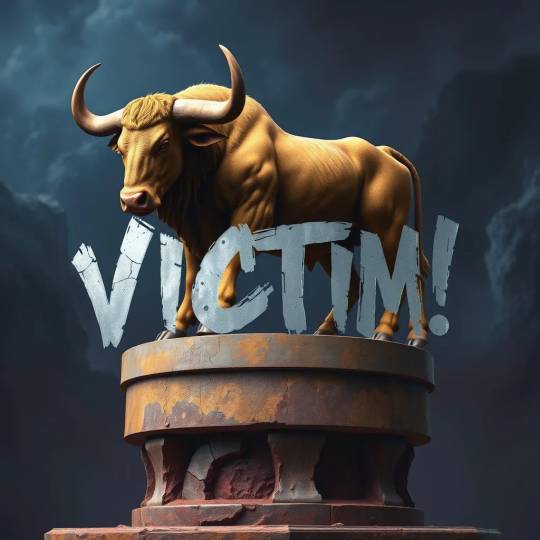
This latter group comprises the “woke,” whether narcissistic, sadistic, witch-hunting activists or merely complacent fellow travelers. I would posit that many people in this “woke” group have not, for the most part, antecedently and independently arrived at "woke" ideology on their own. The true fire of conversion and fanaticism burns in only a rare few. Rather, for most wokists, their minds are such as to spontaneously and uncritically conform themselves to whatever virtuous lie we are collectively supposed to believe or endorse in any given week—from abolishing slave-patrol policing in America, to mass graves of Indians in Canada, to human biology having no bearing on a person's sex or gender. This group has been, and appears to remain, in the grip of an ongoing mass delusion.
Moreover, this group is by and large the class of people that I fully expect to tell me in the comments that none of this ever happened or that I have fallen for a right-wing lie. Some of these people will also make a faulty inference from this essay and assume that I am a hardcore right-winger. In a classic case of the whataboutism fallacy, they will ask, Well, what about the Republicans?, and they'll accuse me of carrying water for a right wing that is supposedly far more repressive than any leftist or Democrat could ever aspire to be.

Even more incoherently, some people from this group will say that my supposed experience of intolerance (which they doubt ever really happened) is in any event exactly what a bigot should expect (and therefore it’s good that it happened). If I have views that it was impossible for me to express on campus over the past years, that is just and good, for their very rejection entails that my views must have been beyond the pale, and no campus is obliged to platform or tolerate Nazis and their ilk. On this view, people like those whose destruction I have chronicled here merely met with a social opprobrium that was symmetrical with their sins. Case closed.
These inferences and accusations are, of course, not only false but also logically fallacious, even if—alas—it has not been uncommon to hear them over the past 4 and more years. The simple truth is that I can be angry about left-wing repressiveness and still be plenty alarmed by right-wing repressiveness, as indeed I am. I have spoken out on Twitter/X against Florida's repression of speech, for example, and against the crushing of pro-Palestinian speech on some campuses, and just recently I shared my fear, which I think is not unfounded, that Trump may end up invoking the Insurrection Act.
Be all that as it may, there is simply no equivalency between the impact on my "lived experience" of the daily, grinding paranoia and fear that the leftist culture of repression and bullying has created in me and that I have seen it create in students and colleagues, and my more abstract and theoretical concerns about a repressive right, that is in any event far more distant from me because I am not obliged to go to or work in Florida or Texas. In contrast, the society-wide leftist culture of authoritarian tyranny that I have described here has been more or less ubiquitous.
I’m well aware that “wokeness” and its associated “cancel culture” kicked off in the 2010s and began to get really bad ten years ago, around 2015, but I have spoken here only of my own personal experience, which became untenable shortly before 2020.
Moreover, I am well aware that the excesses of the totalitarian left of the last few years can’t compete with the horrors of Mao’s Cultural Revolution, or Stalinism, or theocratic Islamism (all three of which, by the way, are embraced to one degree or another by the left). Accordingly, I have used “totalitarian” here not in its proper sense, as a system of authoritarian government, but in an extended sense, as a socially enforced leftwing regime of authoritarianism, an attempt by a vocal minority to exert total control over thoughts, speech, and action. The fact that the abuses perpetrated by American leftists against their freedom-loving fellow citizens over the last few years were not acts of a totalitarian government hardly entails that the era was some sort of picnic, and it is telling that people who grew up in totalitarian regimes have seen echoes of what they escaped in the “woke” regime.
Feel free to deny my account of the last 4 years, but I refuse to be gaslit about what I have experienced and seen.
I close with a parting shot from Nevline Nnaji, whose work we have shared and promoted in the Journal of Free Black Thought:
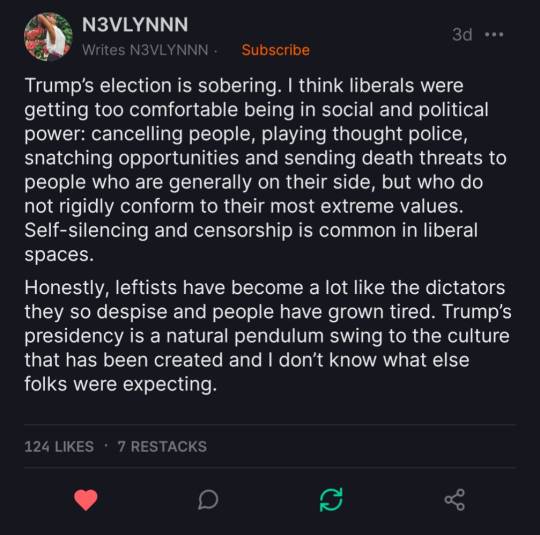
#Jake Mackey#Lee Jussim#authoritarianism#censorship#cancel culture#self censorship#woke#wokeness#cult of woke#wokeism#wokeness as religion#liberal society#liberal ethics#liberal values#classical liberalism#orwellian#critical race theory#diversity training#diversity equity and inclusion#DEI must die#elite colleges#higher education#corruption of education#academic corruption#religion is a mental illness
6 notes
·
View notes
Text
#new york times#David Brooks#progressives#opression Olympics#virtue signaling#moral preening#luxury beliefs#elite universities#elite colleges
0 notes
Text
I’ve been planning for my 30th Elementary School Reunion and I’ve been going through my old stuff. Among many other fascinating things is this self-imposed schedule from freshman year of college (at Wesleyan). I don’t know why this is so interesting to me—perhaps because I recall being insecure, confused, angry, socially inept and depressed—yet the schedule portrays me as being remarkably disciplined—even to the extent that I penciled in calling my parents around 7pm-ish daily (I don’t recall talking to them everyday, but maybe) and “socialize, write, read, misc”—among other things—between 10pm-X, but only on Fri, Sat and Sun nights. That was a job in itself, I guess. But even then, I had “write” for two hours a day, at least 4 days a week!

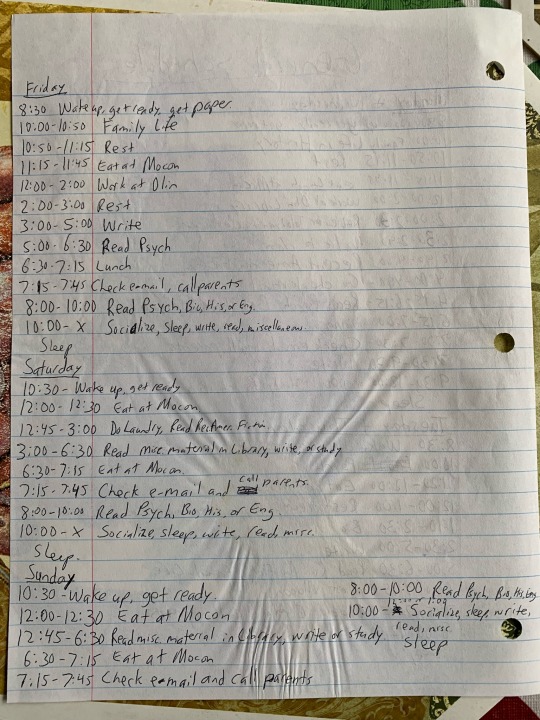
0 notes
Text
Unlike less competitive institutions that have the room to enroll every qualified applicant, elite schools do not use rolling admissions. All applications are due no later than a specific date and no applications are considered before that date. There is never risk that a student will be admitted over someone more qualified simply because they submitted their application first. 

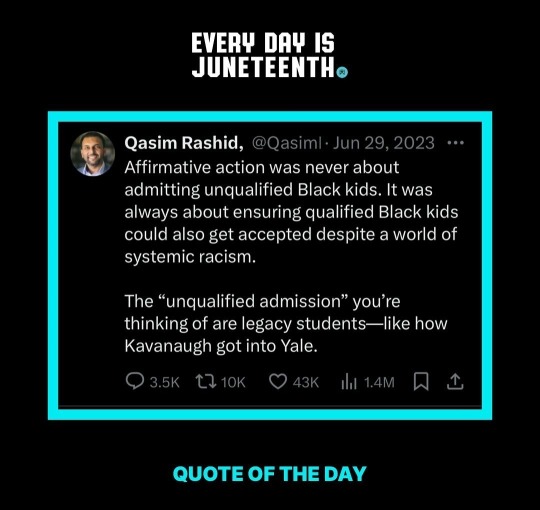
Brett Kavanaugh claimed he had no privilege. His grandfather went to Yale. He is a legacy.
Dubya Bush got into Yale, then Harvard MBA. Guy is dumb as a rock. Another legacy.
695 notes
·
View notes
Text


#neil degrasse tyson#climate change#climate crisis#climate action#the elite#elitist#elitism#wealthy privilege#entitled people#entitlement issues#trump#donald trump#trump 2024#democrats#president trump#florida#california#globalism#leftist#leftism#science#fraud#physics#college#education#tucker carlson#dan bongino#joe rogan#aoc#bernie sanders
696 notes
·
View notes
Text
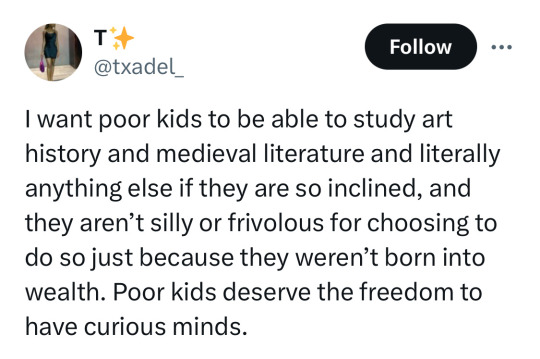
And a reminder that higher education cannot be considered truly democratised if students can still be doomed to poverty with multiple or advanced arts and Humanities degrees...
#poc dark academia#dark academia#higher education#dark academia books#dark academia blog#dark academism#studyblr#studyspo#humanities#university#college#systemic oppression#elitism#classism#artists#liberal arts#grad school#college student#education
2K notes
·
View notes
Text


Finished my first ever scrapbook page
58 notes
·
View notes
Note
Could I request a Drayton fic where he and reader dance whilst it's snowing,?
[You're given a bad grade, one you might not have even earned. Drayton is there in the ensuing aftermath.]
You've emailed your professor, but nothing can be done. For some reason, your professor has decided that your performance in their class was not up to snuff, and you received some point reductions off your final average. It was devastating. If you couldn't even get a perfect grade at your best, what was the point of even trying? Your grades were directly responsible for your enrollment at the academy, and if they started to slip...
Worse was that the standards were already high for you, but no one seemed to see your efforts as hard work. They were just expectations, and when you failed to deliver, well, people looked at you as if it were the start to the end... As if it were finally time you were knocked off your high Mudsdale horse. And of course, here was Drayton, snickering at you as your mind spiraled out of control. Lacey smacked his arm, clearly the most concerned person in the room. Of course from the outside it looks a little ridiculous, but they aren't in your shoes. But your semi-meltdown at the Elite Four bi-weekly conference was coincidentally horrible timing.
Amarys failed to see the larger issue, thinking that the grades were directly proportional to one's own efforts and your own must have slipped. Thus you earned it, and should simply be careful not to let it happen again.
And Crispin? Well, Crispin looked around the room with clear confusion. Who'd be upset over an almost-perfect grade? He'd be ecstatic to receive your marks.
And you're so embarrassed at the email you sent, but you're second-guessing everything. Were you really just horrible? Couldn't your professor see how well you did in everything? How much effort you put into making sure you performed excellently? Is it because you're operating off a different region's idea of perfect academic performance? What happened? Why wasn't your best good enough? What... do you do now?
....
And of course, as the League Club meeting came to an end, Lacey reluctantly departed, Amarys and Crispin following suit. Lacey especially worried about what might happen once it was just Drayton and yourself left in the room.
You all had class in a few minutes, but something told you that you weren't going to be able to pretend it was all okay this time. You were going to tough it out, but she talked you out of it. Just for today. It's just for one class. Not the most reassuring after you just practically signed off your future, but fine. Might as well throw in the towel now.
And Drayton? Why he never showed up to class, and if he did it was always very late into the lecture. Must be nice being a native student who literally couldn't flunk out of school.
"The professor's gonna hate me." You whisper to yourself, groaning at the thought of your panic-induced email. You never wanted to see them in person again, but you'd have to. They must think you're nuts or something. You did write a panic attack in the form of an email after all.
You were already starting to hyperventilate again when Drayton's unhelpful snort caught your attention. "No they're not." He sounded like he was holding back a smile. "You really need to chill. So what if you got a bad grade?" You wanted to agree with him, but every involuntary emotion in your body was sapping your ability to just rationally say yeah, this is nothing. You know that people wish they had your grades, but you still hated it. You hated everything. "Whoa whoa there-" He waved his hands, knowing what you were thinking. "Haven't you learned why overworking yourself is bad? You're supposed to be enjoying the process and not... resenting it like that." "-But hey, that applies to everyone but you, right? Champion world-saver?" He elbowed you, his words obviously sarcastic though he kept an innocent enough tone. "I..." You began to reply. He looked on, a hopeful twinkle in his eye.
"I... haven't been enjoying it for a while now." You paused. "I don't know if I'll ever enjoy this, I mean should I even be here?"
His lips parted for a moment as he blinked a few times. You... what? "You mean... At Blueberry Academy?" He struggled to find words. "Are you..." Are you going to go back to Paldea? You look away, not responding to him. He stands there, eyes wide, realizing just how serious this actually is. "Hey, hey now-" His hands flew up, the fastest you've literally ever seen him move. "You can't- Leave!" Wide, frantic slitted eyes look more frantic than yours probably did writing that email. "That's it! You're-" He's literally barrreling at you now and before you can process how terrifying this actually is he's hoisted you up and tossed you over his shoulder. You're half bleat-screaming and he's rushing out the door. "We're going outside! You need to cool down! Then you can come to your senses and-" You're waiting outside an elevator when the door opens, revealing a student who, for a moment, looked like they were having a normal day before they freeze at the sight of you both and step aside to give him a plentiful amount of room.
[He's still death-gripping you and despite your attempts to wriggle free, he's fighting you on this one!] Now he's frantically pressing the close door button with his elbow, and the poor unfortunate student stuck in the elevator with the two of you scoots back until they're pressed into the corner. The ride is filled with grunts, growls, fighting, and screams and that poor, poor soul is mortified in the corner almost the whole time down--
--Until the door opens to reveal another student on another floor waiting for the elevator. They stop mid-press of the button to take one good look before getting pushed out of the way by the one that was next to you who took their first chance to escape. You and Drayton are too preoccupied to pay attention but the door closes without them stepping on.
Once the door finally opens to the terrarium he's calling out Archaludon who's strong enough to four-legged carry both of you on its back. "YOU'RE-- ffu- oww- HAVING FUN!!!" He's screaming and you're still fighting, all the while Archaludon underneath you turtle walks through the Savanna Biome at a painfully slow pace, passing by several random students who can do nothing but look on with mild horror. "And you're-" You try to think of things to spit back. "-In- insane!" Archaludon squeaks a tiny roar and both of you take it as an agreeance, and thankfully the Pokemon is so sturdy that your thrashing doesn't send it wobbling. At some point he managed to wrangle you into a headlock, but you're still punching and kicking and of course, screaming! "And YOU take things too seriously! Are you really gonna give up over ONE bad grade?! Are YOU insane?!" "Way to broadcast it Drayton!" "What?! I'm right! If anything- I'm, I'm always right! And you know I'm right!" "And--" He's once again picking you up and with one final roar he's tossed you off the side of Archaludon, right into a huge snow bank. Seems you've arrived at the Polar Biome! You fall back first into the crunchy artificial powdered snow and can only see the projection of the blue sky before his hoodie smacks you in the face. Bare arms out, he's given you the oversized thing to wear since you weren't properly dressed for the cold. Despite being mid-argument. He could have thought of that before he threw you into the snow!
"Of course I don't want to leave!" You finally bark at him, making a show of putting on his admittedly very warm hoodie. "I need these grades or else I lose my scholarships and can no longer attend the academy!"
You can see his brain literally buffering as he processes what you've said. Then he's making a fist and slapping it into his open palm. "I'll fight your professor-" "No-" "Cyrano then- or that weird big-haired lady, La Provolone or somethin-" "No!-" "But they're literally overworking you to the point that one bad grade and you think you're gonna be booted out the school!" He scoffs, arms wide as he gestures around to the terrarium. "I watched you have a panic attack over it! Obviously, that's not healthy!" You freeze, not because anything he's said was wrong. He must notice the anguish on your face because he suddenly springs into action, scooping up snow with his bare hands before tossing it up like glitter. "I'll figure it out. There's no way we can't fix this." He says, somehow dead serious while snow awkwardly bundles over both your heads. Somehow, for no good reason, your heart jumps a little in your chest.
He then breaks into a smirk, and then snickers. "But you and I-" he flicks the melting droplets at your face. "Are..." "Dancing! Dance with me!" He does a weird little shimmy with his bare shoulders out, and by Arceus above you never thought he could get even get more loony. "Ch-ch-ah, ch-ch- c'mon!" He's tango-ing, albeit very poorly, before he grabs your hands with his very clammy wet ones and pulls you forward. "What are you-" "Haven't you ever heard of the move Dragon Dance? C'mon now!" He laughs, and you laugh, not forgetting the absurdity of this whole situation. And by some miracle, it starts to snow.
The time of day in the terrarium is changing, and the lights above dim while clouds block out some of the lighter blues from the screens. Long shadows cast on the uninterrupted field of snow, save for what few footprints you've left in it already which you notice once you finally look down. His shadow draws close to yours, and he pulls you along to the sound of small snowflakes scattering in the slight breeze. They rattle almost like leaves, but so, so much softer while each step you both take crunches beneath you. "They'd never let you get kicked out the school." He murmurs, voice low with only a slight edge to it. "You should just talk to them, honestly. There's no way they wouldn't listen to you." "But the professor-" "Professors can be wrong. They're people too. And if I know anything it's that you've done your absolute best. Even if they don't change that one grade, heck, even if you started to flunk-- the people here care about you. They'd try to help before just up and booting you out." You look back up at him, no longer watching your feet make imprints in the snow. He's calm again, a small, concerned smile on his face. Your heart starts hammering in your chest. You're still anxious to high heaven, but not for the same reason as before. He looks absolutely silly in his sleeveless shirt out in the middle of gentle snowfall, but the sparkles in his hair catching the low light are... maybe it's the bitter chill that sweeps in as the breeze hits your face, but you're seeing him so clearly. You close your eyes, the image of him still burned into your mind. "I didn't know you could get so riled up." You whisper. He snorts. "Yeah, I usually don't lose my cool. I've noticed." You open your eyes again, and his eyebrows are only slightly furrowed. The eye contact the two of you are suddenly sharing is, well, the shine of his eyes picks up every golden fleck in his unusual irises. They're so close you can see all the star patterns, the deeper tones and the faceted flecks that sparkle with the reflecting snow.
Though he said it sarcastically, it was true. You've never seen him so animated before, you think, as his smooth annoying face tilted a little to the side. "You really freaked me out there." He's thinking long and hard about something. It's usually subtle, but it's written all over his face this time.
youtube
...
Your noses are brushing, and though you'd expect his breath to be hot, his lips hit yours and feel like soft velvet and the cold.
#x reader#pokemon#reader insert#pokemon x reader#dlc#drayton pokemon#drayton x reader#romantic#slight angst#blueberry academy#academia#college life#sv dlc spoilers#spoilers#scarvio spoilers#scarlet and violet#pokémon scarvio#pokemon scarlet and violet#elite four#unova region#paldea#cheezy#not proofread#furiously typing this one out lol#I mean more than usual#very spontaneous haha#and publish#relationship#brief kiss
226 notes
·
View notes
Text
nothing can describe how proud i am of this uconn team like actually.
so what we lost 5 players? so what our bench is only 3 deep? foul trouble early in the game with our starters? no problem.
i was actually shaking that whole game and i’m in tears rn😭😭
no matter what happens in the final four i am so proud and amazed at everything they do and i’ve never been prouder to be a uconn fan💙💙
GO HUSKIESSSSSS
#paige bueckers#uconn#uconn huskies#uconn wbb#uconn women’s basketball#wbb#wcbb#women’s basketball#women’s college basketball#ncaa women’s basketball#ncaa#ncaa 24#ncaa wbb#ncaa tournament#ncaa basketball#ncaa tourney#elite 8#final four
83 notes
·
View notes
Text

parting gift
#u want CONTEXT?#TOO BAD!!!#i might write a fic ab this but it would b a big-ish one so who knows#all u need to know is army quit the elite 4 and this is wat happens this is what happens after.#coroika#splatoon#army#aloha#pokemon#splatoon manga#au#+sry for not posting i was burnt the fuck out and neow im trying to get college stuff set up yawwwn.
168 notes
·
View notes
Text
https://www.wsj.com/us-news/education/luxury-beliefs-that-only-the-privileged-can-afford-7f6b8a16
‘Luxury Beliefs’ That Only the Privileged Can Afford

By: Rob Henderson
Published: Feb 9, 2024
In the same way that you don’t notice the specifics of your own culture until you travel elsewhere, you don’t really notice your social class until you enter another one. As an undergraduate at Yale a decade ago, I came to see that my peers had experienced a totally different social reality than me. I had grown up poor, a biracial product of family dysfunction, foster care and military service. Suddenly ensconced in affluence at an elite university—more Yale students come from families in the top 1% of income than from the bottom 60%—I found myself thinking a lot about class divides and social hierarchies.
I’d thought that by entering a place like Yale, we were being given a privilege as well as a duty to improve the lives of those less fortunate than ourselves. Instead, I often found among my fellow students what I call “luxury beliefs”—ideas and opinions that confer status on the upper class but often inflict real costs on the lower classes. For example, a classmate told me “monogamy is kind of outdated” and not good for society. I asked her what her background was and if she planned to marry. She said she came from an affluent, stable, two-parent home—just like most of our classmates. She added that, yes, she personally planned to have a monogamous marriage, but quickly insisted that traditional families are old-fashioned and that society should “evolve” beyond them.
My classmate’s promotion of one ideal (“monogamy is outdated”) while living by another (“I plan to get married”) was echoed by other students in different ways. Some would, for instance, tell me about the admiration they had for the military, or how trade schools were just as respectable as college, or how college was not necessary to be successful. But when I asked them if they would encourage their own children to enlist or become a plumber or an electrician rather than apply to college, they would demur or change the subject.
In the past, people displayed their membership in the upper class with their material accouterments. As the economist and sociologist Thorstein Veblen famously observed in his 1899 book “The Theory of the Leisure Class,” status symbols must be difficult to obtain and costly to purchase. In Veblen’s day, people exhibited their status with delicate and restrictive clothing, such as top hats and evening gowns, or by partaking in time-consuming activities, such as golf or beagling. The value of these goods and activities, argued Veblen, was in the very fact that they were so pricey and wasteful that only the wealthy could afford them.
Today, when luxury goods are more accessible to ordinary people than ever before, the elite need other ways to broadcast their social position. This helps explain why so many are now decoupling class from material goods and attaching it to beliefs.
Take vocabulary. Your typical working-class American could not tell you what “heteronormative” or “cisgender” means. When someone uses the phrase “cultural appropriation,” what they are really saying is, “I was educated at a top college.” Only the affluent can afford to learn strange vocabulary. Ordinary people have real problems to worry about.
When my classmates at Yale talked about abolishing the police or decriminalizing drugs, they seemed unaware of the attending costs because they were largely insulated from them. Reflecting on my own experiences with alcohol, if drugs had been legal and easily accessible when I was 15, you wouldn’t be reading this. My birth mother succumbed to drug addiction soon after I was born. I haven’t seen her since I was a child. All my foster siblings’ parents were addicts or had a mental health condition, often triggered by drug use.
A well-heeled student at an elite university can experiment with cocaine and will probably be just fine. A kid from a dysfunctional home with absentee parents is more likely to ride that first hit of meth to self-destruction. This may explain why a 2019 survey conducted by the Cato Institute found that more than 60% of Americans with at least a bachelor’s degree were in favor of legalizing drugs, while less than half of Americans without a college degree thought it was a good idea. Drugs may be a recreational pastime for the rich, but for the poor they are often a gateway to further pain.
Similarly, a 2020 Yahoo News/YouGov survey found that the richest Americans showed the strongest support for defunding the police, while the poorest Americans reported the lowest support. Consider that compared with Americans who earn more than $50,000 a year, the poorest Americans are three times more likely to be victims of robbery, aggravated assault and sexual assault, according to federal statistics. Yet it’s affluent people who are calling to abolish law enforcement. Perhaps the luxury belief class is simply ignorant of the realities of crime.
Most personal to me is the luxury belief that family is unimportant or that children are equally likely to thrive in all family structures. In 1960, the percentage of American children living with both biological parents was identical for affluent and working-class families—95%. By 2005, 85% of affluent families were still intact, but for working-class families the figure had plummeted to 30%. As the Harvard political scientist Robert Putnam stated at a 2017 Senate hearing: “Rich kids and poor kids now grow up in separate Americas.”
In 2006, more than half of American adults without a college degree believed it was “very important” that couples with children should be married, according to Gallup. Fast-forward to 2020, and this number had plummeted to 31%. Among college graduates polled by Gallup, only 25% thought couples should be married before having kids. Their actions, though, contradict their luxury beliefs: Most American college graduates who have children are married. Despite their behavior, affluent people are the most likely to say marriage is unimportant. Their message has spread.
I noticed that many Yale students selectively concealed their opinions or facts about their lives. More than one quietly confessed to me that they were pretending to be poorer than they really were, because they didn’t want the stigma of being thought rich. Why would this stigma exist at a rich university full of rich students? It’s a class thing. For the upper class, indicating your social position by speaking about money is vulgar. Sharing your educational credentials is a classier shorthand, but broadcasting your seemingly altruistic and socially conscientious luxury beliefs is the best of all.
It is harder for wealthy people to claim the mantle of victimhood, which, among the affluent, is often a key ingredient of righteousness. Researchers at Harvard Business School and Northwestern University recently found evidence of a “virtuous victim” effect, in which victims are seen as more moral than nonvictims who behave in exactly the same way: If people think you have suffered, they will be more likely to excuse your behavior. Perhaps this is why prestigious universities encourage students to nurture their grievances. The peculiar effect is that many of the most advantaged people are the most adept at conveying their disadvantages.
Occasionally, I raised these critiques with fellow students or graduates of elite colleges. Sometimes they would reply by asking, “Well, aren’t you part of this group now?” implying that my appraisals were hollow because I moved within the same milieu. But they wouldn’t have listened to me back when I was a lowly enlisted man in the military or when I was washing dishes for minimum wage. If you ridicule the upper class as an outsider, they’ll ignore you. The requirements for the upper class to take you seriously—credentials, wealth, power—are also the grounds to brand you a hypocrite for daring to judge.
But negative social judgments often serve as guardrails to deter detrimental decisions that lead to unhappiness. To avoid misery, I believe we have to admit that certain actions and choices, including single parenthood, substance abuse and crime, are actually in and of themselves undesirable and not simply in need of normalization. Indeed, it’s cruel to validate decisions that inflict harm. And it’s a true luxury to be ignorant of these consequences.
Rob Henderson is the author of “Troubled: A Memoir of Foster Care, Family, and Social Class,” which will be published on Feb. 20 by Gallery Books.
[ Via: https://archive.today/FAksi ]
#Rob Henderson#luxury beliefs#leisure class#elite class#monogamy#virtuous victim#victimhood culture#victimhood#Similarly#defund the police#abolish the police#luxury goods#elite colleges#elite universities#privilege#religion is a mental illness
8 notes
·
View notes
Text

Louis Tomlinson received the Praeses Elit Award from the Trinity College Law Society, Dublin.
The award is given to those who have left an indelible impact in their chosen field, and who have advanced discourse and societal thought in the process.
Louis was unable to attend in person, but will attend in the future. via tcdlawsoc
“We were honoured to present Judge Aileen Donnelly, Ms Reni Eddo-Lodge and Mr Louis Tomlinson with the Praeses Elit Award and we were lucky to have Judge Donnelly and Ms Eddo-Lodge address our members! Mr Tomlinson was unfortunately unable to attend in person on his recent trip to Dublin but has committed to come in to us in the future!”
55 notes
·
View notes
Text
qimir the stranger the typa guy to play the piano in a modern setting
#seeking revenge against mentor vernestra and all the other elites#who humiliated him in front of all the other pupils of the institute college whatever#but qimir the musical prodigy comes back with a new name and fingers faster than ever to dethrone her and her students#what is going on#the acolyte
14 notes
·
View notes
Text
am i smack in the middle of my series's p1 climax? yes. am I starting a regular human au that's a few chapters long to fight writer's block? yes
it's a dark ass one too lol, i'll give a summary if asked
#got about 2000 words so far#it isn't the college one or royalty one that's fully plotted in my brain though lol#very chase/kaz focused#lab rats#mighty med#lref#elite force#lab rats elite force#disney#chase davenport#kaz#kaz mm#kaz lref#kase#chaz#chase x kaz#kaz x chase
10 notes
·
View notes
Text


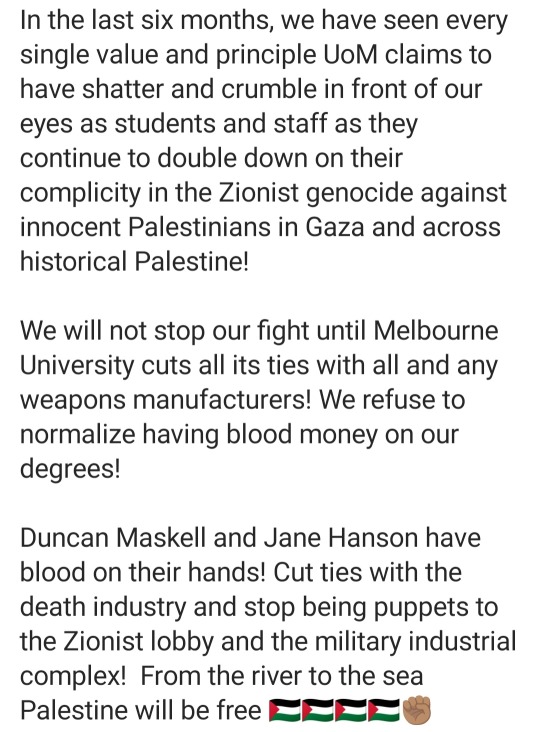
#free palestine#genocide#israel is a terrorist state#boycott israel#americancrimes#anti capitalism#endisraelsgenocide#ceasefirenow#Ant imperialism#Revolution#Antifada#Gaza#Humanity#warcrimesingaza#society#children#Stop the genocide#Stop arming Israel#capitalism#Imperialism#imperialistgenocide#Elite#melbourne#australia#colleges#University#higher education#antifada#revolution#liberation
16 notes
·
View notes
